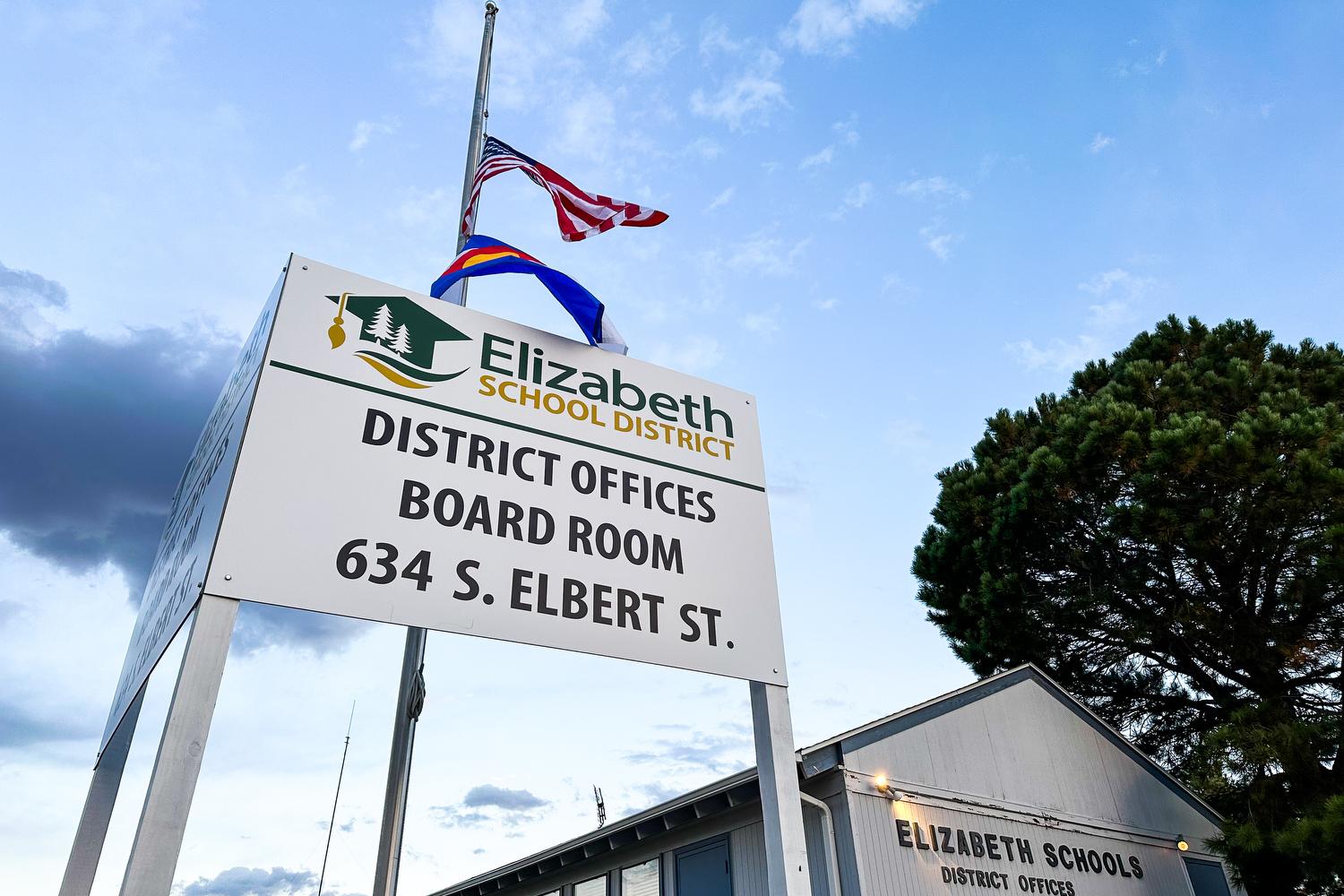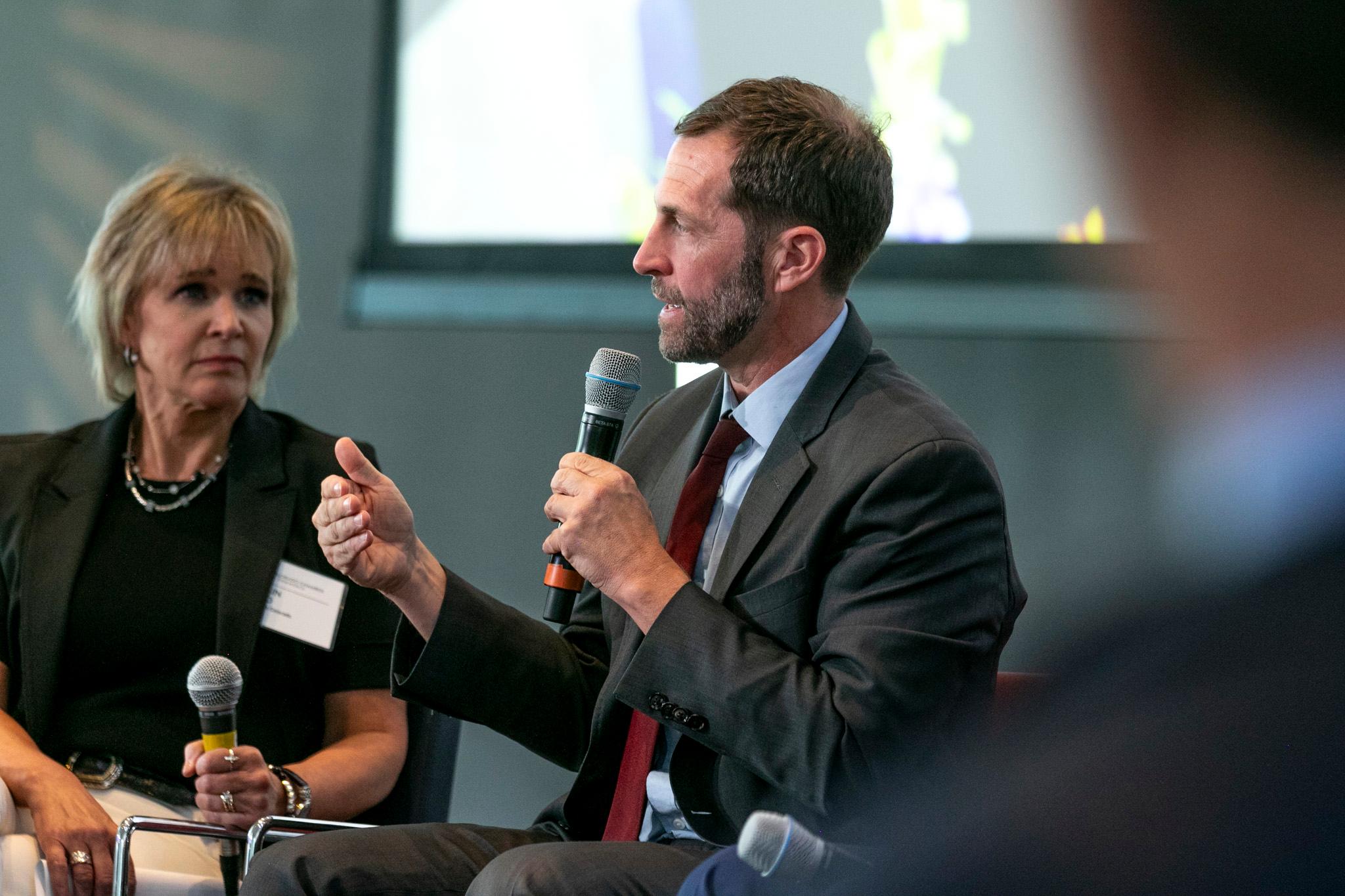
While book bans in school libraries typically cause a flurry of news coverage, a new poll shows just a tiny fraction of Americans have personally engaged in the debate – about 3 percent.
The Knight Foundation poll found that two-thirds of Americans oppose book restrictions in public schools, with strong opposition outnumbering strong support nearly 3 to 1. Confidence in public schools' selection of appropriate books is high at nearly 80 percent.
But support for book bans can be stronger in more conservative school districts. Last week the board of the Elizabeth School District in Elbert County, bordering Douglas County, voted to remove 19 books from school library shelves after a curriculum committee reviewed the books for things like graphic violence, racism/discrimination, ideations of self-harm or mental illness, and sexual content.
The board initially voted to eliminate classroom libraries from classrooms but later directed the Superintendent to wait on that decision after gathering feedback from staff. It will discuss the issue at its work session next Monday.
A recent University of Colorado study found that Republican counties that have become less conservative over the past two decades were more likely to ban books compared to those that were solidly Republican. As Elbert County has grown, the percentage of registered Republicans has dropped, with unaffiliated voters growing in size. In recent years, the school board has become more political.
The 19 books that have been removed are on display outside the district’s boardroom for the public to give feedback. That will determine what happens to them, including permanent removal, moving them to a different grade level, returning them to the collection, or including them on a new “sensitive topics” list.
Dozens of books — like '1984' — placed on a 'sensitive list'
The board also voted to place 100 additional books on a “sensitive topics” list. If a student checks out one of those books, for example, Anne Frank’s “The Diary of a Young Girl,” a parent is automatically notified and the parent can block the child from checking out further “sensitive” books.
“It’s their right to know what their child is checking out,” said school board director Mary Powell. “We need to be sure that we are protecting our students from things that are controversial.”
Books on the “sensitive” list include “The Catcher in the Rye,” "The Hunger Games," “1984,” “To Kill a Mockingbird,” and several books about religion. Powell deemed the books on the list as being “beyond any educational value.” The school board director said she struggled with placing books about the world’s religions on the list but said committee review members are trying to be aware that everyone does not share the same values.
“A parent who does not want their child to read the Bible should be notified that their child checked out the Bible, a parent who does not want their child to read the Koran should be notified that their child has checked out the Koran,” Powell said.
Books may be brought to the attention of the district throughout the year by staff or parents to be reviewed for inclusion in this list. Books on this list could also be removed based on further discussion between members of the community and the board, according to Superintendent Dan Snowberger.
More on the poll
The Knight Foundation, which has been conducting public opinion polling on attitudes toward the First Amendment and free expression for two decades, carried out a random national sample of more than 4,500 adults, about a quarter of whom are K-12 parents.
The 32-page report offers many details on precisely what Americans think students should or shouldn’t be allowed to read at the elementary, middle and high school levels.
The poll found most people believe potentially controversial topics should be available to middle and high school students. But much fewer agree on that for elementary students. Even fewer Americans see parents’ moral values, religious beliefs or political views as legitimate reasons to restrict books.

While conservatives account for 29 percent of all adults, they make up 57 percent of book restriction supporters, the report said. Fifty-seven percent of conservatives do not believe that books available in their community’s public schools adequately represent conservative political views. Democrats, liberals and LGBTQ adults are most opposed to book bans.
Nearly 60 percent of public school parents oppose book restrictions, which is lower than the 67 percent opposition rate among individuals who are not parents.
Among those polled, trust is highest in public school librarians and teachers to determine age appropriateness.
'It's not book banning'
While the Elizabeth school board is asking teachers for feedback, it has removed the books it believes may be objectionable and will let the community weigh in.
“It is not booking banning,” said Powell. “They are not on our shelf because we do not feel that they fulfill the educational protocols that we believe in for this district,” she said.
Superintendent Snowberger said the list of “sensitive topics” will help librarians be more purposeful in their selections.
“It empowers parents,” he said.
School board president Rhonda Olsen emphasized that books brought from home can’t be shared with other students.
In 2023, there were 142 titles challenged in 12 attempts to restrict access to books in public libraries in Colorado libraries, almost the same number as in the bordering state of Utah, a highly religious state, according to data from the American Library Association.









